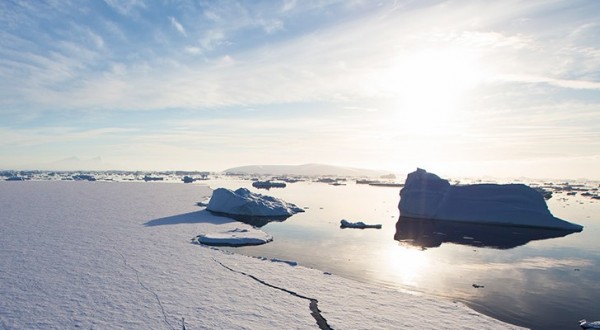Dingjing Huang, Underwriting and Legal Analyst at UK P&I discuss Annex VI of the Environment Protocol and why shipowners trading in the Antarctic should be aware of their potential liabilities.
“Annex VI of the Environment Protocol, which deals with liabilities arising from environmental emergencies, has not yet come into force, but shipowners trading in the Antarctic should be aware of their potential liabilities under this regulation.
“The Treaty’s Protocol on Environmental Protection came into force in 1998. Its objective is the ‘comprehensive protection of the Antarctic environment and associated ecosystems’. The Protocol imposes strict regulations on all activities carried out in the Antarctic.
“One of the most significant aspects of the Protocol is its treatment of environmental emergencies. Parties are committed to providing ‘prompt and effective’ response actions to emergencies arising from activities carried out in the Antarctic area, which include shipping activities.
“The obligations and liabilities under Annex VI are the prevention and mitigation of environmental emergencies; responding to such emergencies; and assigning liability for meeting the costs of responding.
“UK P&I Members involved in activities in the Antarctic region are advised to be aware of the potential impacts of Annex VI of the Antarctic Treaty:
- Annex VI applies to ‘environmental emergencies’. These are defined as accidental events that result in, or imminently threaten to result in, any significant and harmful impact on the Antarctic environment
- The Annex covers such emergencies where they are connected to scientific research programmes, tourism and ‘all other governmental and non-governmental activities in the Antarctic Treaty’
- The Antarctic Treaty requires each contracting party to give notice to the other contracting parties of all expeditions to and within Antarctica
- The main responsible person under Annex VI is the ‘operator’. An ‘operator’ is defined to include any natural or legal person, governmental or non-governmental, that organises activities to be carried out in the Antarctic Treaty area. It excludes natural persons who are acting as employees, contractors or agents of a person organising such activities.
“Annex VI also states that the Secretariat of the Antarctic Treaty shall maintain and administrate a fund, which is known as the Antarctic Environmental Liability Fund (‘AELF’).
“Unlike funds under other maritime liability regimes, the main purpose of the AELF is to reimburse costs incurred by a Party or Parties in taking response action, to the extent that such costs are reasonable and justified. It does not appear to serve as a fund to compensate third parties and the source of the fund will include voluntary contributions from any State or person.
“In order to underpin liability, Parties must require their operators to maintain adequate insurance or other financial security (such as a bank guarantee) up to the applicable limits to cover their liability to Parties who step in to take the required response actions where they have themselves failed to do so.
“Parties can also require similar insurance or financial security to be provided to cover circumstances where the operator is liable to make a payment to the AELF, to the Party of the non-State operator, or to a party that takes enforcement action against it in circumstances where no Party steps in to address the emergency.
“Two questions remain unanswered by the Annex: whether the insurer will be able to invoke defences available to the insured; and whether the insurer may subrogate and claim reimbursement from the AELF fund. These questions need to be addressed before the Annex comes into force.”
Source: UK P&I Club

































































